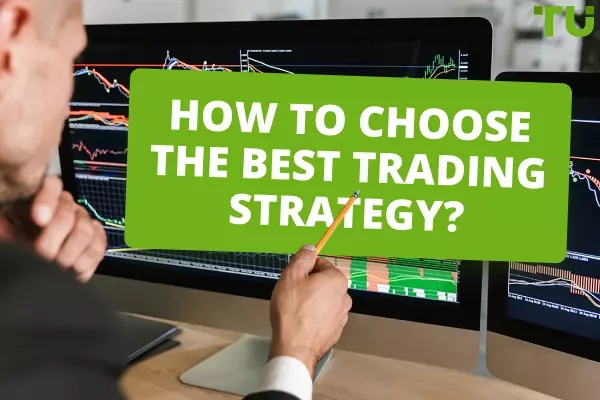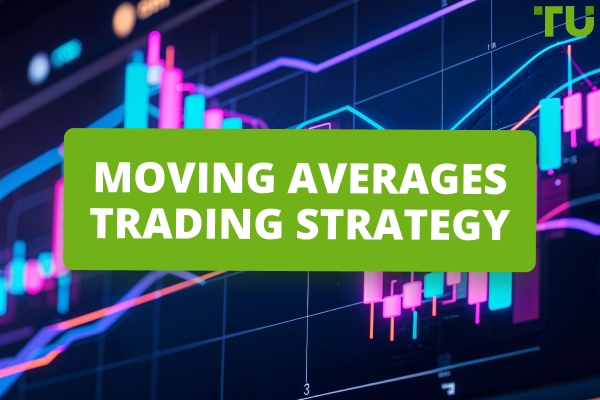The 10 Skills You Should Learn for Home Trading
Trading from home has allowed thousands of dedicated people to change their lives. It can be a lucrative business, but only if executed properly.
Is Trading From Home A Good Idea?
Trading from home, or anywhere for that matter, must be approached with great care. But so many people overlook how risky trading is that most novice traders lose and leave in the first year. How can you avoid that?
Top 10 Tips For Successful Trading From Home
There is a lot to be gained from trading from home, but only if you do it right. Starting on the right foot and at the right place is the best way of increasing your odds of success. Here, we have compiled 10 sound tips to give you an advantage.
1. Prioritize Self-Education
The first, and most important step to successful home trading is gaining as much knowledge as you can. However, you need to make sure you are getting knowledge that counts. There is a lot of knowledge out there, but trading is already quite complex as it is. Therefore, you need to find a way to sort through it all. Preferably without spending tons of money.
The first and most effective option is finding a mentor. If you can find one in person, the better. If not, follow a trading content creator who specializes in educating people. Read their books, watch their videos and even sign up for their newsletter. Many of these mentors usually have courses or free tutorials you can dedicate some time to. You could also find free trading courses from other content creators.
If your mentor does not come with the full package, then you can consider augmenting their support with an online trading course. Prices range from $50 per course (Udemy) to $1499 annually (Bulls on Wall Street) for live training. It is best to consider the pricier options only when you feel you aren’t making any progress.
2. Risk management
Since there have been people trading for half a century now, there are numerous methods one can use to avoid risk. Though imperfect, they have helped people navigate the complex and erratic stock market and even emerge victorious.
Here is a list of 5 forex risk management strategies you should pay attention to while learning how to trade from home:
Understanding how forex works before trading on a live account
Practicing for the recommended time on a demo account
Setting a risk-reward ratio
Using stops and limits
Understanding leverage
Putting risk management will help you avoid risks in the initial weeks and months of your trading career. So much so that you may not feel the impact of your mistakes as much. However, there is one strategy that crowns them all: having a sound trading plan.
Forex Risks Investors Should Consider3. Always Have a Trading Plan, Entry Point, and Invalidation
A trading plan is a strategy that guides how a trader finds and executes trades. It thus involves everything from outlines on how to manage specific positions while in them, under which conditions they will buy and sell securities plus how large their positions will be. A trading plan is like a set of trading rules that dictate how you conduct yourself while trading.
Two major things you should consider in your trading plan are entry points and invalidation. An entry point is a price at which investors buy or sell securities. The invalidation points indicate where deals are no longer legitimate. They help guide you on when to buy, and when to steer clear of trades. These decisions cannot be made on the spot, you need a clear strategy based on the analysis of multiple factors. Only a plan will help you do that.
The main aim of the trading plan is to keep you grounded and secure. These measures need to be taken because of the greatest risk to your success: your own emotions.
4. Learn to Control Your Emotions
There are several trading strategies available, but the strangest thing is that they aren’t always followed; not even by professional traders. The culprit: heightened emotions.
People invest in forex trading. So it should not come as a surprise that people give a lot of meaning to their trades. They could either lose everything or win big. That is why the two main emotions to look out for are fear and greed.
Regardless of which of these emotions dominates your mind, you must put it in check. Stick to your trading plan and only make calculated risks, especially in your first year.
Trading psychology: how to achieve success5. Work on Automating Trading Strategies
Automated trading is also known as algorithmic trading. This second definition offers a better explanation because the set of instructions you input is used as an algorithm. These instructions are based on your trading strategy. The algorithm then informs how a computer program places trades.
The main benefit of setting up algorithmic trading is generating profits faster and more accurately than you would be able to. However, you need to be on the lookout for market changes and make necessary adjustments. You should also be careful about what platform you choose.
Technology always swoops in to save the day: forex trading from home is no exception. But in this case, as it is in many others, technology is only coming in to act as an aid, not a replacement
6. Experiment with Trading Strategies
Before you settle down for a strategy, try out a few.
For beginners, the best trading strategies to try out are swing trading and position trading. These two methods are often less emotionally involved as compared to day trading. Of course, it is best to practice these techniques on demo accounts before testing them on your live account.
7. Be Diligent With Your Learning and Practice Schedule
Learning and trading at home can be both a blessing and a curse. On one hand, you have unlimited time to trade, on the other, you have endless distractions.
If you want to be among those who succeed in trading from home, be as disciplined as you can. Set up a schedule if you have to. Make sure that you are making progress every day.
8. Treat Trading Like a Real Business
For you to succeed as a trader, you must not view trading as anything less than a legitimate business. Whether it’s full-time or part-time, avoid thinking of it as some kind of hobby or pastime.
If you do not give it as much importance as it deserves, it will not earn you what you require.
9. Keep Learning, Never Become Complacent
A good trader needs to know the markets inside out. Since markets keep changing, it means constant learning and analysis are necessary.
Never get complacent, especially after you begin to feel comfortable with trading. Keep an open mind, always watch the news, and attend educational forums when you can. Of course, never stop practicing.
10. Don’t Lose Sight of the Bigger Picture
Finally, trading can get tough but you must be tougher. Expect losses; they are the norm when it comes to trading. Take every loss as a learning opportunity. You will not wake up a trading guru one day and make endless profits. It takes time and effort so do not give up too soon.
How to Begin Your Trading Career
Begin your trading career with these 5 easy steps:
1. Study the market
Every decision you make will depend on the condition of the market at the time. Study the markets. Learn how to analyze them to inform your trades.
2. Choose a broker
Find a regulated broker that has all the features you need to get started.
How to Choose a Forex Broker?3. Start with a demo
Practice consistently on a demo account for a minimum of 6 months. This is the required time to perfect your trading skills.
4. Fund your account
Once you start a live account, put in a small fraction of your savings. Start with little funds then increase them once you have more experience.
5. Experiment and learn more
Try new techniques, learn from others, sign up for online courses and even join communities for traders. Keep analyzing markets and keep learning. You need to stay on your toes in this ever-changing market.
How Much Money Do I Need to Begin?
For a start, it is better to limit yourself to a small amount, the loss of part of which will not affect your material well-being. It is worth adding capital only when there is a stable success.
How Much Can I Make?
The most successful traders can become millionaires. However, it is better to start by focusing on good trade execution rather than massive profits. Everyone’s luck is different. Profits and success is a consequence of your discipline and trading strategy.
Where Can I Trade?
Knowing where to trade is important because you will be trusting the brokers with your hard-earned money. Here are two of the best, regulated brokers for you to start your journey.
Oanda
Oanda is the best platform available for forex trading. It has lower fees compared to other brokers on the market.
Interactive Brokers
Interactive Brokers is the leader in stock trading. The low-interest margins are great for beginners.
Summary
Trading from home can turn your life around, but only if done with care, discipline, and persistence. Right now, you have all you need for a great start.
FAQs
Should I Quit My Job to Trade?
No, especially not if you are a beginner. Unless you have had a consistent profit for several months, or have made enough wealth to risk losing your job.
Is Trading From Home a Good Side Hustle?
Yes, but it may take a few months for you to start earning consistent profits due to the steep learning curve.
Can I Fully Rely on Algorithmic Trading?
Any algorithmic trading is only as good as the trading strategy coded into it. Therefore, people with more training data and expertise can create algorithms far superior than any home trader can. This gives people with more resources an upper hand.
Should I Take a Course to Learn Trading?
Yes, taking a course will help you progress faster. You can get courses for every price point but there are also several free resources online that you can try.
Glossary for novice traders
-
1
Swing trading
Swing trading is a trading strategy that involves holding positions in financial assets, such as stocks or forex, for several days to weeks, aiming to profit from short- to medium-term price swings or "swings" in the market. Swing traders typically use technical and fundamental analysis to identify potential entry and exit points.
-
2
Trade Execution
Trade execution is knowing how to place and close trades at the right price. This is the key to turning your trading plans into real action and has a direct impact on your profits.
-
3
Investor
An investor is an individual, who invests money in an asset with the expectation that its value would appreciate in the future. The asset can be anything, including a bond, debenture, mutual fund, equity, gold, silver, exchange-traded funds (ETFs), and real-estate property.
-
4
Position trading
Position trading is a long-term strategy where traders hold positions for extended periods, often weeks or months, based on fundamental analysis of an asset's value.
-
5
Algorithmic trading
Algorithmic trading is an advanced method that relies on advanced coding and formulas based on a mathematical model. However, compared to traditional trading methods, the process differs by being automated.
Team that worked on the article
Oleg Tkachenko is an economic analyst and risk manager having more than 14 years of experience in working with systemically important banks, investment companies, and analytical platforms. He has been a Traders Union analyst since 2018. His primary specialties are analysis and prediction of price tendencies in the Forex, stock, commodity, and cryptocurrency markets, as well as the development of trading strategies and individual risk management systems. He also analyzes nonstandard investing markets and studies trading psychology.
Also, Oleg became a member of the National Union of Journalists of Ukraine (membership card No. 4575, international certificate UKR4494).
Olga Shendetskaya has been a part of the Traders Union team as an author, editor and proofreader since 2017. Since 2020, Shendetskaya has been the assistant chief editor of the website of Traders Union, an international association of traders. She has over 10 years of experience of working with economic and financial texts. In the period of 2017-2020, Olga has worked as a journalist and editor of laftNews news agency, economic and financial news sections. At the moment, Olga is a part of the team of top industry experts involved in creation of educational articles in finance and investment, overseeing their writing and publication on the Traders Union website.












